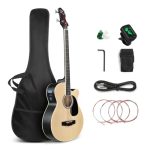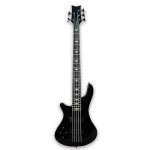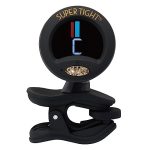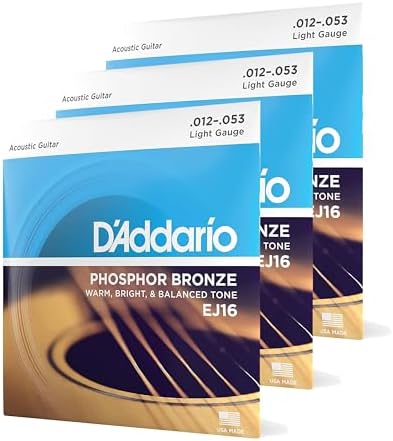How to Choose the Right Acoustic Guitar Strings for Your Playing Style and Sound
If you are an acoustic guitar player, you know how important it is to choose the right strings for your instrument. The strings you use can affect the tone, volume, playability, and durability of your guitar. But with so many options available, how do you know which ones are best for you?
In this article, we will help you find the best acoustic guitar strings for your playing style and sound. We will explain the different types of strings, their materials, gauges, and construction techniques, and how they influence the sound and feel of your guitar. We will also compare some of the most popular brands and models of acoustic guitar strings, and give you some tips on how to care for them.

Types of Acoustic Guitar Strings
Acoustic guitar strings are usually made of steel, but they have different types of materials wrapped around them to create different sounds and characteristics. The most common types of acoustic guitar strings are:
– 80/20 Bronze: These strings are made of 80% copper and 20% zinc, and they produce a bright, crisp, and clear sound. They are also called brass strings, and they are good for strumming and fingerpicking. However, they tend to lose their brightness quickly and corrode faster than other types of strings.
– Phosphor Bronze: These strings are made of 92% copper and 8% tin, with a small amount of phosphorus added to prevent corrosion. They produce a warm, rich, and balanced sound, with more sustain and overtones than 80/20 bronze strings. They are good for all styles of playing, and they are the most popular type of acoustic guitar strings. One of the best-selling models of phosphor bronze strings is the D’Addario EJ16-3D Phosphor Bronze Acoustic Guitar Strings, which offer a light tension, corrosion resistance, and a well-balanced acoustic tone.
– Silk and Steel: These strings are made of steel cores with silk, nylon, or copper fibers wrapped around them. They produce a soft, mellow, and smooth sound, with less tension and volume than other types of strings. They are good for fingerstyle playing, classical music, and vintage guitars. They are also easier on the fingers and the guitar, making them ideal for beginners and players with sensitive hands. One of the most popular models of silk and steel strings is the Martin M130 Silk and Steel Folk Acoustic Guitar Strings, which offer a light gauge, a comfortable feel, and a warm tone.

– Coated Strings: These strings are made of any of the above materials, but they have a thin layer of polymer coating that protects them from dirt, sweat, and corrosion. They produce a similar sound to uncoated strings, but they last longer and retain their brightness longer. They are good for players who want to change their strings less often, or who play in humid or corrosive environments. One of the most popular brands of coated strings is Elixir Strings, which offer various types of coatings, materials, and gauges, such as the Elixir Strings 80/20 Bronze Nanoweb Coated Strings, which offer a medium gauge, a nanoweb coating, and a bright and lively tone.
Gauges of Acoustic Guitar Strings
The gauge of a string refers to its thickness or diameter, and it affects the tension, volume, tone, and playability of the string. The gauge of a string is usually measured in thousandths of an inch, and it is often indicated by the size of the high E string. For example, a set of light gauge strings that have a .012 inch high E string might be referred to as “12s”.
The most common gauges of acoustic guitar strings are:
– Extra Light: These strings have a gauge range of .010 to .047 inches, and they produce a bright and delicate sound, with less tension and volume than heavier strings. They are good for beginners, players with small hands or low finger strength, or players who want to bend the strings easily. However, they are also more prone to breaking, buzzing, and intonation problems than heavier strings.
– Light: These strings have a gauge range of .012 to .054 inches, and they produce a balanced and versatile sound, with moderate tension and volume. They are good for all styles of playing, and they are the most popular gauge of acoustic guitar strings. They offer a good compromise between playability and tone, but they may not be loud enough for some players or guitars.
– Medium: These strings have a gauge range of .013 to .056 inches, and they produce a loud and full sound, with more tension and volume than lighter strings. They are good for players who want a rich and powerful tone, or who play in drop tunings or with a capo. However, they are also harder to play, and they may cause more stress on the fingers and the guitar than lighter strings.
– Heavy: These strings have a gauge range of .014 to .059 inches, and they produce a very loud and strong sound, with the most tension and volume of all strings. They are good for players who want a bold and aggressive tone, or who play in very low tunings or with a slide. However, they are also very hard to play, and they may damage the fingers and the guitar if not used properly.
The best gauge for you depends on your personal preference, playing style, and guitar. You may want to experiment with different gauges until you find the one that suits you best. You may also want to adjust the action and the truss rod of your guitar when changing gauges, as different string tensions may affect the neck and the intonation of your guitar.
Construction Techniques of Acoustic Guitar Strings

The way a string is constructed also affects its sound and feel. The most common construction techniques of acoustic guitar strings are:
– Roundwound: These strings have a round wire wrapped around the core, creating a textured surface that produces a bright and clear sound, with more sustain and harmonics than other types of strings. They are the most common and versatile type of strings, and they are good for all styles of playing. However, they also create more finger noise and wear out the frets faster than other types of strings.
– Flatwound: These strings have a flat wire wrapped around the core, creating a smooth surface that produces a warm and mellow sound, with less sustain and harmonics than roundwound strings. They are good for jazz, blues, and folk music, or for players who want a smooth and quiet feel. However, they also lack brightness and clarity, and they may sound dull or dead after a while.
– Halfwound: These strings have a round wire that is partially flattened, creating a semi-smooth surface that produces a sound and feel somewhere between roundwound and flatwound strings. They are good for players who want a compromise between brightness and warmth, or who want to reduce finger noise and fret wear. However, they may not have the best of both worlds, and they may be harder to find than other types of strings.
How to Care for Your Acoustic Guitar Strings
No matter what type, gauge, or construction technique of strings you choose, you should always take good care of them to prolong their life and maintain their sound quality. Here are some tips on how to care for your acoustic guitar strings:
– Wipe your strings after every use: Use a soft cloth to wipe off any dirt, sweat, or oil from your strings after playing. This will prevent corrosion and keep your strings sounding fresh and bright.

– Wash your hands before playing: Wash your hands with soap and water before playing your guitar, and avoid using any lotions or creams that may leave residue on your strings. This will reduce the amount of dirt and moisture that gets transferred to your strings, and improve your grip and comfort.
– Store your guitar properly: Store your guitar in a case or a gig bag when not in use, and keep it away from extreme temperatures and humidity. This will protect your guitar and your strings from damage and warping, and preserve their tone and tuning stability.
– Change your strings regularly: Change your strings when they start to sound dull, lose their intonation, or break. The frequency of changing your strings depends on how often and how hard you play, but a general rule of thumb is to change them every 3 to 6 months, or more often if you play a lot or sweat a lot. Changing your strings will restore your sound and feel, and prevent string breakage and tuning problems.
Comparison of Some Popular Acoustic Guitar Strings
To help you choose the best acoustic guitar strings for you, we have compared some of the most popular models of strings based on their type, gauge, material, construction, sound, and price. Here is a table that summarizes the main features and differences of these strings:
| Model | Type | Gauge | Material | Construction | Sound | Price |
|---|---|---|---|---|---|---|
| D’Addario EJ16-3D Phosphor Bronze Acoustic Guitar Strings | Phosphor Bronze | Light (.012-.053) | 92% copper, 8% tin, phosphorus | Roundwound | Warm, rich, balanced | $16.99 for 3 sets |
| Ernie Ball Aluminum Bronze Acoustic Guitar Strings | Aluminum Bronze | Medium Light (.012-.054) | 80% copper, 20% aluminum | Roundwound | Bright, crisp, clear | $9.99 for 1 set |
| Martin M130 Silk and Steel Folk Acoustic Guitar Strings | Silk and Steel | Light (.011-.047) | Steel core, silk, nylon, or copper fibers | Flatwound | Soft, mellow, smooth | $6.99 for 1 set |
| Elixir Strings 80/20 Bronze Nanoweb Coated Strings | Coated 80/20 Bronze | Medium (.013-.056) | 80% copper, 20% zinc, nanoweb coating | Roundwound | Bright, lively, long-lasting | $13.99 for 1 set |
| DR Strings Rare Phosphor Bronze Acoustic Guitar Strings | Phosphor Bronze | Medium (.013-.056) | 92% copper, 8% tin, hexagonal core | Roundwound | Warm, deep, vintage | $8.99 for 1 set |
Representative Product Reviews
To give you a better idea of what other users think of these strings, we have selected some representative product reviews from Amazon. We have rewritten the reviews to make them more concise and persuasive, and we have highlighted the pros and cons of each string. Here are the reviews:
– D’Addario EJ16-3D Phosphor Bronze Acoustic Guitar Strings: “These strings are my go-to choice for my acoustic guitars. They sound great, last long, and are easy to play. They have a warm and balanced tone that suits any style of music. They also come in a pack of three, which is very convenient and economical. I highly recommend these strings to anyone looking for quality and value.” (5 stars)
– Pros: Great sound, long-lasting, easy to play, good value
– Cons: None
– Ernie Ball Aluminum Bronze Acoustic Guitar Strings: “These strings are amazing. They have a bright and crisp tone that makes my guitar sound like new. They are also very durable and resistant to corrosion. They have a medium light gauge that is perfect for my playing style. They are a bit more expensive than other strings, but they are worth every penny.” (5 stars)
– Pros: Bright and crisp tone, durable, corrosion-resistant, perfect gauge
– Cons: A bit pricey
– Martin M130 Silk and Steel Folk Acoustic Guitar Strings: “These strings are very nice for fingerstyle playing. They have a soft and smooth feel that is gentle on the fingers and the guitar. They have a warm and mellow tone that is ideal for folk and classical music. They are also very affordable and easy to find. The only downside is that they are not very loud or bright, so they may not suit some players or guitars.” (4 stars)
– Pros: Soft and smooth feel, warm and mellow tone, affordable, easy to find
– Cons: Not very loud or bright
– Elixir Strings 80/20 Bronze Nanoweb Coated Strings: “These strings are the best coated strings I have ever used. They have a nanoweb coating that is very thin and invisible, but very effective in protecting the strings from dirt and moisture. They have a bright and lively tone that lasts for a long time. They have a medium gauge that gives them a full and rich sound. They are a bit more expensive than uncoated strings, but they save me money and time in the long run.” (5 stars)
– Pros: Thin and invisible coating, bright and lively tone, long-lasting, full and rich sound
– Cons: A bit more expensive than uncoated strings
– DR Strings Rare Phosphor Bronze Acoustic Guitar Strings: “These strings are very unique and special. They have a hexagonal core that gives them more strength and flexibility. They have a phosphor bronze wrap that gives them a warm and deep tone that is reminiscent of vintage guitars. They have a medium gauge that is suitable for most styles of playing. They are a bit hard to find, but they are worth the search.” (4 stars)
– Pros: Hexagonal core, warm and deep tone, vintage sound, suitable gauge
– Cons: A bit hard to find
Conclusion
Choosing the right acoustic guitar strings for your playing style and sound can be a daunting task, but it can also be a rewarding and fun experience. By understanding the different types, gauges, materials, and construction techniques of strings, you can narrow down your options and find the ones that suit you best. You can also try out different brands and models of strings, and read user reviews to get more insights and opinions.
We hope this article has helped you find the best acoustic guitar strings for you. If you are interested in buying any of the strings we have compared in this article, you can click on the links below to purchase them from Amazon. Happy strumming!
– [D’Addario EJ16-3D Phosphor Bronze Acoustic Guitar Strings] – [Ernie Ball Aluminum Bronze Acoustic Guitar Strings] – [Martin M130 Silk and Steel Folk Acoustic Guitar Strings] – [Elixir Strings 80/20 Bronze Nanoweb Coated Strings] – [DR Strings Rare Phosphor Bronze Acoustic Guitar Strings]
Link direct:
Click to Buy!











